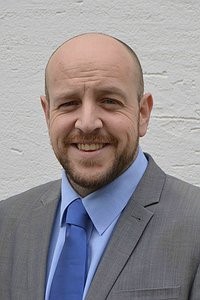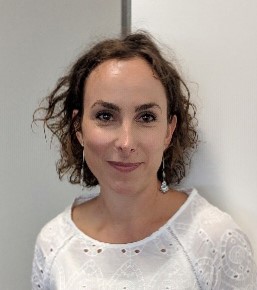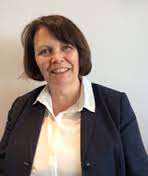
Session Description
Session 1 – Recorded Tuesday, 18 May 2021
Title: Caring for people with co-occurring mental health and drug conditions
Description: Better care for people with co-occurring mental health and substance misuse conditions
Detailed Description: Over the last decade, successful campaigns in Britain have encouraged people to talk about their mental health. However, there’s a piece of the puzzle that is still too often missing from the national debate about mental health – addiction. It’s time to talk openly about co-occurring conditions of mental illness and addiction, as part of the same conversation – because when they co-occur, they are never isolated issues.
In treating co-occurring conditions, it’s essential that professionals have the knowledge and skills to understand the interplay between the conditions. The more we bring the conversation about co-existing addiction, depression and anxiety into the open, the more healthcare services will have to adapt to patients’ needs.
In this session, leaders in the field of co-occurring diagnosis Adferiad Recovery will explore where we are in responding to co-occurring issues, and how we can develop in the future. The session will also look at barriers that are sometimes faced and encourage discussion around how we can effectively overcome these, with coproduction and collaboration at the heart of how we do this.
Presenters:
Leon Marsh – Director of Hospital and Residential Services

Leon has held various positions within criminal justice, housing, and residential services with both statutory and third sector organisations. Adferiad Residential Services are one of the largest providers of residential treatment in the UK, treating over 1,000 complex needs patients per year. Consisting of medically managed inpatient detox and residential rehab facilities and secure mental health services.
Leon is also a board member of Recovery Group UK (RGUK) contributing to the recent Dame Carol Black Review. Leon’s interest is in ensuring that Adferiad delivers quality, cost effective and innovative services which meet the needs of service users, commissioners, and communities.
Leon is keen to drive forward the co-occurring agenda, built on the fundamental principles of partnership working, collaboration and co-production.
Lisa Shipton
 Having previously worked within criminal justice services in the statutory sector, Lisa joined the voluntary sector in 2007. Since then, she has held various positions with a focus on supporting those with substance misuse and / or mental health issues. Lisa joined Adferiad Recovery in 2019, welcoming the opportunity to effectively support those with co-occurring issues in a more joined up and accessible way.
Having previously worked within criminal justice services in the statutory sector, Lisa joined the voluntary sector in 2007. Since then, she has held various positions with a focus on supporting those with substance misuse and / or mental health issues. Lisa joined Adferiad Recovery in 2019, welcoming the opportunity to effectively support those with co-occurring issues in a more joined up and accessible way.
Lisa enjoys listening to and understanding the needs of service users and the wider community, to help develop and deliver services which are innovative and responsive to need. She likes to take a solution focussed approach, working in a collaborative way. Lisa describes herself as having had the privilege of supporting those affected by substance misuse and mental health, and by far her greatest learning continues to be from the many hours spent with service users and their families.
Get the video now!
Session 2 – Recorded Tuesday, 18 May 2021
Title: Learning from lockdown
Description: Learning from lockdown, an honest conversation.
Detailed Description: This session will explore the findings from a series of conversations Platfform held with publics service and community practioners across Wales during the pandemic. Many of the Lessons from Lockdown (Lessons-from-Lockdown-report.pdf (platfform.org)) are by now familiar: collaboration, focus on what matters and localism flourished but others exposed holes in organisational cultures at odds with trauma informed, healing focussed and asset based ways of working. In particular this session will focus on the leadership challenge ahead as we grapple with the need for certainty without wanting to lose the authentic and creative ways of working that emerged during times of great uncertainty.
Presenter:
Charlotte Waite – Lead on Systems Change and Transformation.
 Charlotte has a twenty year career in and around social care. Working both as an academic and a practioner Charlotte’s work has influenced policy and practice both locally and nationally. Recently she spent two years on secondment at the Wales Adverse Childhood Experience Hub, leading on Psychologically Informed Environments within Housing which is an on-going national programme. Now at Platfform a Mental Health and Social Change charity she leads on Systems Change and Transformation.
Charlotte has a twenty year career in and around social care. Working both as an academic and a practioner Charlotte’s work has influenced policy and practice both locally and nationally. Recently she spent two years on secondment at the Wales Adverse Childhood Experience Hub, leading on Psychologically Informed Environments within Housing which is an on-going national programme. Now at Platfform a Mental Health and Social Change charity she leads on Systems Change and Transformation.
Get the video now!
Session 3 – Recorded Wednesday, 19 May 2021
Title: Reforming the Mental Health Act
Description: Reforming the mental health act: what will this mean for people and services?
Detailed Description: A long-awaited overhaul of the Mental Health Act 1983 has been formalised by the Department of Health and Social Care in a white paper proposal. The reforms will potentially transform mental health care to a greater focus on prevention and individual patient needs.
The changes to the Mental Health Act will have particular importance to for the care of people with learning disabilities and/or autism, and for people from Black communities through the proposed tackling of racial disparities in mental health services and the piloting of culturally appropriate advocates.
In this seminar, we will be examining what the changes to the Mental Health Act will mean for mental health services across the country and especially what the changes will mean for people with learning disabilities and/or autism and for people from Black communities who encounter mental healthcare services. Additionally, the speakers at this event will also explore what more needs to be done to improve standards of care post-reform.
Presenters:
Alison Cobb
 Alison is based in south east London and is the senior policy and campaigns manager of Mind, and currently leads their policy development of the Mental Health Act reform. Her educational background is in social policy and the information sciences. And she has previously worked at Mind in various information, policy, and campaigning roles.
Alison is based in south east London and is the senior policy and campaigns manager of Mind, and currently leads their policy development of the Mental Health Act reform. Her educational background is in social policy and the information sciences. And she has previously worked at Mind in various information, policy, and campaigning roles.
Dr Adrian J B James FRCPsych
 Adrian was elected President in 2020. He holds this role until 2023 and leads the RCPsych on behalf of its members and associates.
Adrian was elected President in 2020. He holds this role until 2023 and leads the RCPsych on behalf of its members and associates.
Adrian is Consultant Forensic Psychiatrist at Langdon Hospital in Dawlish, Devon. He is a former Medical Director of Devon Partnership NHS Trust and Founding Chair of the School of Psychiatry at the Peninsular Deanery (2006-2008).
He was the elected Chair of the South West Division of the Royal College of Psychiatrists (2007-2011) and sat on the College Council in this capacity. In 2010 he was appointed Chair of the Westminster Parliamentary Liaison Committee of the Royal College of Psychiatrists (attending the three main Party Conferences 2011-14 in this capacity).
He was Clinical Director for Mental Health, Dementia and Neurology, working for NHS England South West (2013-2015, interim from 2012-13). He has also acted as a Reviewer and Clinical Expert for the Healthcare Commission and its successor organisation the Care Quality Commission (CQC).
He has chaired expert review groups on Integrated Care Systems, Cannabis, Prevent and Learning from Deaths. In addition, he set up the Quality Improvement (QI) Committee and Workforce Wellbeing Committee at the College.
Dr Jane McCarthy

Dr Jane McCarthy is Associate Medical Director/Appraisal Lead & Medical Lead for Learning Disability Service with the Sussex Partnership NHS Foundation Trust. She is Honorary Associate Professor in Psychological Medicine, University of Auckland, New Zealand and Visiting Senior Lecturer, King’s College London. She is an elected member of the Executive Committee of the Psychiatry of Intellectual Disability Faculty of Royal College of Psychiatrists.
Dr McCarthy has over 25 years of experience as a Consultant Psychiatrist In Intellectual Disability working for the past decade in forensic services including medium and low secure inpatient services for people with intellectual disability and autism. More recently she has worked in community based forensic services both in New Zealand and England.
Dr. McCarthy’s key research interests include the needs of defendants and prisoners with intellectual disability and autism. She has edited six textbooks and is editor of the journal titled ‘Advances in Autism: International outcomes in education, health and care’.
Get the video now!
Session 4 – Recorded Wednesday, 19 May 2021
Title: Detention must provide a therapeutic benefit
Description: Detention must provide a therapeutic benefit to the individual and is about more than medication
Presenters:
Alex Paget-Murphy
 Alex is a registered mental health nurse working as a charge nurse in Gellinudd Recovery Centre. He has experience of working in adult inpatient setting as well as community recovery and assessment teams both in South Wales and in Southwest England. Throughout his career he has held a special interest in the assessment and treatment of emotionally unstable personality disorder. Following his interest, he has undertaken qualifications in Dialectical Behaviour Therapy (DBT) and is passionate about its delivery and the principles that guide the therapists and its clients.
Alex is a registered mental health nurse working as a charge nurse in Gellinudd Recovery Centre. He has experience of working in adult inpatient setting as well as community recovery and assessment teams both in South Wales and in Southwest England. Throughout his career he has held a special interest in the assessment and treatment of emotionally unstable personality disorder. Following his interest, he has undertaken qualifications in Dialectical Behaviour Therapy (DBT) and is passionate about its delivery and the principles that guide the therapists and its clients.
Alex has expressed hope that the guiding principles of DBT can be built upon to lead the way in producing a recovery service focused on skills and commitment to change, minimising the traditional restrictions that patients have faced in the past.
Helen Bennett
 RGN, RMN, SCM, MSc in Nursing, MSc in Laws, Dip Counselling.
RGN, RMN, SCM, MSc in Nursing, MSc in Laws, Dip Counselling.
Helen Bennett retired from the NHS in October 2013 where she had been Divisional Nurse for Mental Health services for over 17 years. Helen has had a varied career spanning over 40 years in the NHS. The majority of this time was within mental health. Helen was instrumental in changing the law for service users back in 1989/90 ensuring that they no longer had to pay for legal representation when detained under the Mental Health Act (1983).
Helen was awarded the RCN Lifetime Achievement award in 2013 for her work in mental health.
Since retiring Helen has worked with a Mental Health Charity in Wales (Hafal) developing the first charity led hospital in Wales for mental health. She also works with South Wales Police taking forward work with the Crisis Care Concordat. Helen has also undertaken work for the Health Minister. She has worked closely with the RCN on Parity of Esteem and involved service users from across Wales. Helen is an Executive Board member for Gamian Europe, representing Hafal in Europe. Helen has been part of the development of the NICE guidance for Mental Health Rehabilitation, published in 2020. Throughout her career Helen’s focus has always been around improving quality of care for service users and carers.
Julia Wheatley
 Julia is an experienced mental health nurse who originally worked within NHS forensic mental health services. Julia joined the team at Hafal in 2017 and is passionate regarding co-production and following the least restrictive principle. Julia is registered under HIW as the Registered Manager of Gellinudd Recovery Centre.
Julia is an experienced mental health nurse who originally worked within NHS forensic mental health services. Julia joined the team at Hafal in 2017 and is passionate regarding co-production and following the least restrictive principle. Julia is registered under HIW as the Registered Manager of Gellinudd Recovery Centre.
Get the video now!
Session 5 – Recorded Thursday, 20 May 2021
Title: The changing face of therapy
Description: The integration of technology into mental health care: what will the digital revolution mean for services?
Detailed Description: In line with the digital zeitgeist, the pandemic has necessitated that mental health services incorporate technology further into their practices and patient care plans. However, this move hasn’t been without complications, not only because of the impromptu swiftness of that change, but also because the transfer from in person to technology mediated care has been challenging for some patients due to the nature of their mental health condition or because of digital poverty.
Although despite the pandemic, healthcare is undoubtably going through a digital revolution, considering that our lives are increasingly digitalised, and services are merely playing catchup to this new reality.
In this session we will be discussing the role of technology in mental health care, examining recently published research from Mind exploring digitalisation during the pandemic as well as thinking through the wide-ranging benefits of digital mediated care and investigating the role of mental health professionals in the use of these technologies and in the safeguarding of its limitation.
Presenters:
Leila Reyburn

Leila is the policy and campaigns manager for Mind; focuses on improving access and quality of mental health services for all people who have mental health problems. Her educational background is in the social sciences, having received a BA in Politics and Human Rights at Essex University, and a MSc in Violence, Conflict and Development at SOAS.
Previously she has worked in a non-clinical role in an NHS Mental Health Trust, before moving into a focus on health inequalities as a consultant, largely focused on public health. And she ran Stonewell’s Department of Health funded programme promoting the health of LGBTQI+ people.
Tim Barker, CEO of Kooth

Tim is CEO of Kooth plc, one of the UK’s largest digital mental health platforms. With over 30 years of experience in the tech industry, his experience spans start-up to scale-up, and leadership roles across product, marketing, and commercial.
Prior to Kooth, Tim was CEO of DataSift, privacy-by-design analytics, and AI platform, acquired by Meltwater in 2018. Previously, he led EMEA Marketing at Salesforce to help establish the cloud computing industry and scale them to become a billion-dollar business.
Edward Moody

Edward is a qualified as an integrative counsellor and psychotherapist in 2011 at the University of Leeds and started working in IAPT the same year. He has worked as a counsellor/psychotherapist in IAPT for the past 10 years. In 2014 he further completed training in NICE recommended treatment for depression Interpersonal Therapy (IPT) and qualified the same year.
In his current role he is part of the clinical management team at Turning Point Talking Therapies which includes being the team leader of the IAPT team and has a caseload of clients for Interpersonal Therapy (IPT).
Get the video now!
Session 6 – Recorded Thursday, 20 May 2021
Title: Working Effectively with Personality Disorder
Description: Working Effectively with Personality Disorder
Detailed Description: This session is about a contemporary approach to helping people who have the problems associated with a ‘personality disorder’ diagnosis. Jo and Sharon will examine how new and effective ways of working need to be more collaborative, system based and promoting of social action. They will explore some of the critical perspectives in their book Working Effectively with ‘Personality Disorder’ to suggest there are three key issues that are problematic with our current service provision. To conclude Jo and Sharon will talk about what they think are the fundamental shifts that should be made, and the way clinicians should think about the work which would orientate us to a new and better direction.
Presenters:
Dr Jo Ramsden

Jo is a Consultant Clinical Psychologist and Clinical Lead for the Yorkshire/Humberside Personality Disorder Partnership (YHPDP). YHPDP is part of Leeds Personality Disorder services and works in partnership with the national probation service as part of the national Offender Personality Disorder (OPD) strategy. Jo is interested in and committed to finding a way of working with people who are, typically, excluded from services and/or whose contact with services has been damaging. The importance of organisational anxiety is, she believes, paramount to helping us find a way of working restoratively with some of the more intractable difficulties and damaging practices. Services and providers can work better where they are able to examine themselves.
Sharon Prince

Sharon is a Consultant Clinical & Forensic Psychologist and is the Clinical Lead for the Personality Disorder Services within Leeds and also the Strategic Lead for Psychological Professions within Leeds & York Partnerships NHS Foundation Trust. The award winning Personality Disorder Service has a national reputation for being psychologically informed and for continuous innovation. For over twenty years, her career has been spent working with service users who have been marginalised and excluded from services, and with whom services have often struggled to provide accessible and acceptable services. She is passionate about psychologically informed mental health care and how both psychological and social models can be employed to improve service user, carer and staff experiences.
